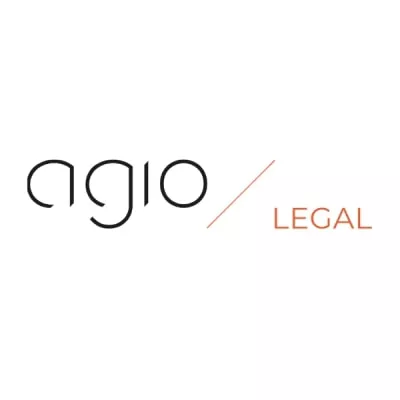Introduction: the current situation
In a business context, it is common for parties to entrust the fulfillment of their contractual duties to so-called auxiliary agents, i.e. broadly speaking directors, officers, personnel, subcontractors and other third parties who are delegated to actually fulfil the obligations under a contract.
Consider a scenario where you provide services to your customer (the principal), which are subcontracted to a number of your business partners (auxiliary agents). Should any issues arise during the delivery process of the services, the principal's recourse for compensation under Belgian law currently lies solely with the contracting party (yourself), as per your contractual agreement with the customer (save for exceptional circumstances). Subsequently, insofar the customer has filed any claims against you for which your subcontractor is (co-)responsible, you may then pursue legal action against your own subcontractor to recover (part of) your losses.
Under the principle of so-called quasi-immunity in Belgian law, the customer has however no legal ground to claim damages directly from your subcontractor (or your directors, officers and personnel). With the recent adoption on 1 February 2024 of a new Book 6 to the New Belgian Civil Code by the Belgian Parliament, this cornerstone principle is set to be abolished.
The implications of this new legislation are significant. Directors, personnel, (sub)contractors, free professions and other auxiliary agents will face a heightened direct liability risk for faults committed in the course of providing their services or performing their duties. Indeed, the principal will not only retain a contractual claim against their own contractual counterparty, but will also gain a secondary tort claim directly against the counterparty's auxiliary agent(s). This claim will be based on the principles of tort law: the auxiliary agent will be responsible for losses insofar it acted in a manner in which a similar, prudent auxiliary agent placed in the same circumstances would not have acted. The principal will therefore, based on ordinary tort law principles, need to prove the existence of such fault, the amount of the losses and causality between these two elements.
Given the significant extent of this change, its impact will only become apparent once the first cases appear in case law. Tort law will interplay with company or employment law, thereby raising new questions. Other practical issues will arise too. For instance, a contractual fault is normally remedied by a compensation for the losses that were foreseeable at the entry of the contract, while tort law presumes that all foreseeable and non-foreseeable, direct and indirect, losses are compensated. The calculation of the losses of a direct claim against auxiliary agents should, reasonably speaking, not differ from a direct contractual claim against the main contractor, but discussions hereon will without doubt arise until a decision is rendered by a (higher or the supreme) court.
Consequences for directors and officers of companies
While directors and other officers of companies can already be held directly liable by third parties in the event of directors' faults under company or insolvency law, their liability is set to increase due to the fact that a counterparty to an agreement of the company they manage will be able hold them liable on the basis of contractual obligations of the company itself.
Indeed, under the current rules, directors are only liable to third parties when their actions constitute an extra-contractual fault, such as a criminal offense. However, once the quasi-immunity principle is abolished, any fault would render the director liable insofar this constitutes a breach under tort law. Such fault is rendered when the director does not fulfill his or her duties in a manner consistent with what one would expect from a reasonable director, whether in cases of non-criminal breaches of corporate law or failure to meet the standard of care. For example, if a director decides not to perform a certain contractual obligation, such as a payment or the performance of a contract, this could in certain circumstances be regarded as an additional breach under tort law.
It is yet to be seen how company law (which includes a specific liability ground for decisions or acts that are manifestly outside the range within which a normal, prudent and diligent director in the same circumstances would reasonably act) and tort law will interact. Will the higher liability threshold of company law be relevant to determine a fault, or would a lower threshold under tort law (e.g., faults that are serious, but are not manifestly outside the aforementioned range within which a director should act) become sufficient?
Consequences for employees
While direct liability claims against employees will become possible, they may still be difficult to pursue in practice, given that employees continue to enjoy extensive liability protections established traditionally under Belgian employment law. A principal would need to prove that his counterparty's employee committed fraud, a serious fault or repeated minor faults to be able to claim additional liability (the only grounds of liability that are not excluded under Belgian employment law).
Nevertheless, employees may become the target of direct claims by their employer's customers, which may just be pursued to increase pressure on them in case of disputes (e.g., to obtain certain information for the customer's case against the employer). Employer will therefore need to consider whether or not to automatically exonerate their employees in the event of direct claims. If this choice is made, the necessary provisions could be included in the individual employment agreement or internal policies.
How to prepare for these new rules and limit your (future) liability?
When faced with a direct claim by the principal, the auxiliary agent can use defenses based on both contracts in the chain: (i) the contract between itself and the contractor, and (ii) the contract between the contractor and the principal. This includes the fact that certain clauses are invalid, or that certain claims are time-barred. The main agreement between the principal and the contractor can even include an exclusion of the liability of the auxiliary agent, which is in principle validly opposable against the principal.
When drafting new contracts and revising old ones, it is therefore crucial to include both contractual liability and tort liability limitations. To safeguard personnel or subcontractors (including independent consultants) against potential claims by customers, incorporating liability limitation clauses within contracts with the principal may be advisable. For example, a clause can be agreed which limits the principal's right to indemnification to contractual losses only, thereby excluding an additional tort claim based on the contractual fault.
Similarly, embedding such clauses within agreements with the auxiliary agent (such as service or employment agreements) provides an extra layer of protection, as these can be directly invoked against the customer too in case of any claims. The question is here if these take the form of an exclusion of liability, a requirement for the main contractor to include an exclusion of liability in the contract with the principal, or even an indemnity by the contractor for claims by the customer (insofar these would not lead to a contractual fault in the relationship between the main contractor and the subcontractor). Much will depend on the bargaining position of the auxiliary agent.
Additionally, enhancing or establishing insurance coverage for civil tort liability of employees serves as a prudent measure, a practice already adopted by many companies.
Can directors of companies additionally limit their liability?
Company law foresees that the director's company cannot a priori limit any directors' liability in an agreement or otherwise. Only the law itself limits this liability to a certain amount in a limited number of cases. In principle, a limitation of liability for the directors of the company in its agreements with customers will therefore not be valid. It remains to be seen whether the provisions in company law will need to be amended, as these did not take into account that the director's quasi-immunity as auxiliary agent would be abolished and in principle only applied to 'real' director's faults.
However, these provisions do not exclude that the company's parent company or shareholders safeguard the directors of the company or affiliate against third party claims. International management agreements may therefore need to take this specific Belgian risk into account, creating additional indemnification principles.
In the meantime, directors should at least ensure to review the terms and conditions of their D&O insurance (or consider underwriting such insurance insofar it does not exist yet within the company).
How to protect yourself as principal against a chain of subcontractors?
If, on the other hand, you are considering the possibility that you may have to file claims against your counterparties' auxiliaries in the future, it is wise to proactively establish contractual frameworks that facilitate such actions. One effective strategy involves integrating specific clauses within your agreements that mandate your counterparties to provide comprehensive information regarding their auxiliaries. For instance, a manufacturer entering into a supply agreement with a vendor could insert clauses requiring the vendor to disclose details about any third-party service providers or subcontractors they intend to engage with during the fulfillment of the contract. Additionally, the manufacturer can for example stipulate provisions that necessitate its approval prior to finalizing any contracts with these auxiliaries.
By implementing these proactive measures, you are not only safeguarding your interests but also ensuring smoother resolution processes in the event of disputes or issues arising with the auxiliary entities. This approach promotes transparency, accountability, and ultimately strengthens the overall contractual relationship between you and your counterparties.
Timeline
It is expected that the new liability rules will enter into force as of 1 January 2025. The abolishment of the so-called quasi-immunity of auxiliary agents is of course only one of the novelties of the new Belgian tort law, be it a very significant one. The new regime will apply to all liability claims as of that date, even if these are based on existing agreements dating from before 2025.
It is therefore strongly recommended that you begin reviewing key contracts (and key contract templates), especially those that are in the course of negotiations, and modify (or, if possible, renegotiate) them to be as prepared as possible for these new rules and the new risk they bring.
The content of this article is intended to provide a general guide to the subject matter. Specialist advice should be sought about your specific circumstances.



